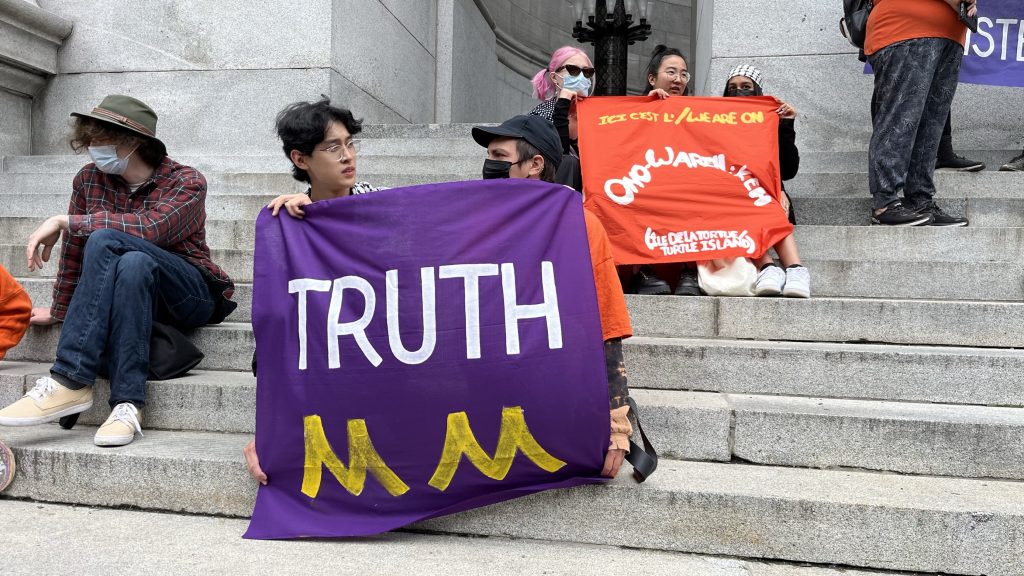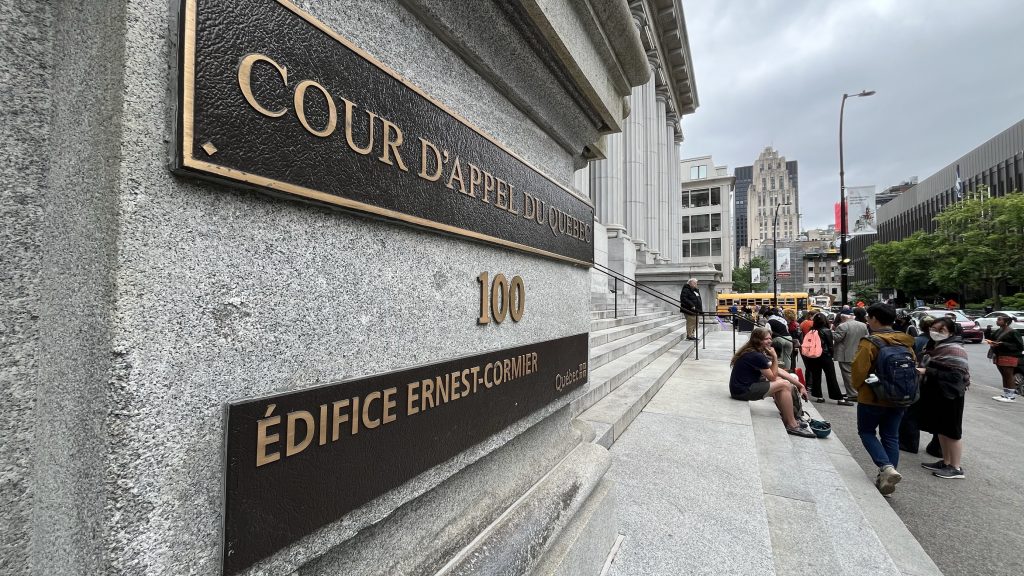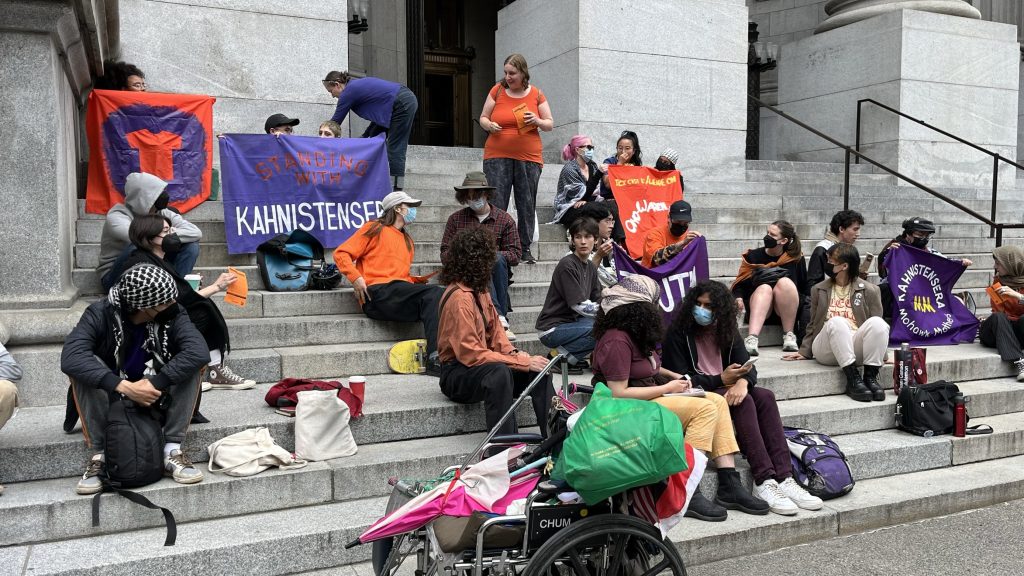The Kanien’keha:ka Kahnistensera, known as the Mohawk Mothers, were at the Court of Appeal of Quebec on Tuesday, continuing their legal battle in the search for unmarked graves at a former Montreal hospital site.
The court is set to decide if independent archeologists should oversee the search at the former Royal Victoria Hospital.
The case involves McGill University and the Société québécoise des infrastructures (SQI) – who are appealing a November Superior Court decision. They claim the archeologists’ work is completed.
“This is still an ongoing battle that we’re having, something that should have been settled a long time ago,” said Kwetiio, a member of the Mohawk Mothers, at a press conference on the steps of the courthouse.
During the 1950s and 60s, the Allen Memorial Institute at the Royal Victoria Hospital performed mind control experiments. The Mohawk Mothers say that there could be survivors of those treatments buried at the site, both Indigenous and non-Indigenous.
Last June, cadaver dogs identified possible evidence of human remains on the site, and the Mohawk Mothers claim there are more findings.
“The findings that have happened in November and in May and the tests that have gone on, we’ve had more findings. And there was even a probing technique done,” continued Kwetiio. “It showed that there are human evidence in the ground. And that’s something that was important to bring up today.”
All sides had previously agreed to hire archeologists.

The Mohawk Mothers are concerned about how the search is being conducted.
A brief supporting them says that, “Once a shovel hits bones, it is already too late.”
It was submitted by the federally appointed independent special interlocutor for missing children and unmarked graves and burial sites associated with Indian residential schools.
“It’s really important here to show that I believe that the judges had not just a feeling, but a more of an understanding of this dialogue that needs to happen with reconciliation,” continued Kwetiio. “I mean, there’s so much work that was done on behalf of a special interlocutor to open eyes and open a new door for new ways to happen within this system, where Indigenous people are not given such a hard time when it comes to missing children and missing peoples.”
McGill and the SQI have maintained that they are committed to uncovering the truth. And that they adhere to a court-approved process for conducting their investigations. They’ve previously noted searches carried out in 2023 yielded no evidence of burials.
“We have to change the way that those children or those people got in the ground. And we can’t continue that same cycle that now that we’re new generations, we have the same system. Something has to change, and that’s what we’re here for,” said Kwetiio.

